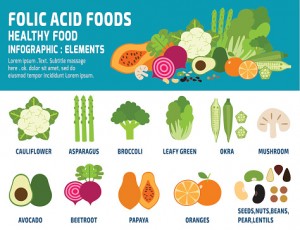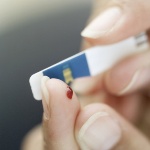So What Exactly Is Water Weight, Anyway?
Many of us have gone on a cleanse or detox and rapidly shed pounds. We were careful not to get too excited though, as we all know, those pounds are just “water weight.” When starting a diet, you can lose like crazy at first but understand that these initial results are far different from losing actual fat. But that is where the understanding ends. What exactly is happening? Fortunately, the experts have weighed in! Time to kiss your confusion goodbye!
How water weight works
Our body is made up of around 50-60% water. The amount you retain depends on what you eat. If you eat a lot of salty foods, for example, you will retain large amounts of water. Rebecca Lewis, R.D. for HelloFresh, says that eating sodium can cause your cells to soak up water like a sponge. If you have a diet that is high in sugar, the same thing can happen. Too much sugar means higher levels of insulin in your blood which can make your body retain sodium which, as mentioned before, leads to retaining water. Eating a lot of carbs can also contribute the amount of water your body holds. For every gram of carbohydrate that your body stores to use as energy later (known as glycogen), it also stores 3 grams of water!
Weight loss means losing water
All of the reasons listed above contribute to your rapid weight loss at the beginning of a diet. You are releasing the water your diet has been causing your body to hold, explains Ashvini Mashru, R.D., author of Small Steps to Slim.
When you reduce the number of calories you eat, your body burns through them quickly and then dips into glycogen stores. Because glycogen is held in the body by water, burning it means releasing that water.
So What Exactly Is Water Weight, Anyway? Click To Tweet
“This initial weight loss can be as much as eight pounds, depending on your starting weight,” says Mashru. When you start to rehydrate, the number will creep back up a little but this doesn’t mean anything unhealthy is happening. “This doesn’t mean that you’re retaining water in an unhealthy way; your body is just adjusting to your healthier eating habits,” explains Mashru.
Why is fat harder to flush?
Our metabolism has a particular way of doing things which makes it easy to lose water and harder to lose fat, according to Linda Anegawa, M.D., founder and medical director of OSR Weight Management in Kailua, Hawaii. Our bodies use our sources of energy in a specific order. Dietary sugars and carbs go first, followed by muscle and finally, fat. Anegawa says this is because energy sources were hard to find for our early ancestors so we became incredibly efficient at storing fat. Once upon a time, our survival depended on it.
Keep your water weight in check
If you are in the process of trying to lose weight, losing water weight is to be expected. Once your body has adjusted to your new way of eating, there are lots of ways you can help keep your water weight at a reasonable level. Avoiding salt and sugar is an essential place to start. And believe it or not, drinking more water is also helpful. “When you don’t drink enough water, your body will hang on to every drop in order to keep your important cellular functions working properly,” says Lewis.
If you take your time with your weight loss goals, avoiding crash diets or elimination diets, you can go a long way to ensuring your water weight won’t blow up. “Restricting calories for a lengthy period of time can actually cause water retention,” Lewis explains. If you drastically reduce your calorie consumption for a prolonged period, you will see a rise in the stress hormone, cortisol. Cortisol increases water retention.
So, if you eat cleanly by avoiding salt and sugar (for a clean-eating plan, check out the BodyRock Meal Plan), stay hydrated and treat yourself kindly on your weight loss journey, you should be able to keep a handle on your water weight. Your body knows what it needs to do. Give it a chance to do it.
Does this clear up your confusion about water weight?
Source: Women’s Health
-
If You Want To Lose Weight Fast, Put A Your Lizard On A Leash!
It seems these days that everyone wants to lose weight fast. Yet t
-
How To Choose A Gym
One common phenomenon in the United States today is that many people a
-
Weight Loss Meals - Critical Facts You Should Know
Losing weight requires a lot of serious
-
3 Protein Mistakes Even Healthy Eaters Make
You know all about healt
-
5 Tips To Losing Weight With Convenience Food
While it would be ideal to make all of our own snacks and meals from
-
General Guidelines For Fast Weight Loss
It is not easy to lose weight quickly. For a fast weight loss you mus
- DON'T MISS
- Weight Loss Nutrition – 3 Square Meals vs 6 Small Meals a Day
- 5 Nutritious Foods That Help You Lose Weight
- Let Your Light Shine! ~ 5 Tips for Cultivating Your Inner Light
- The Diverticulitis Diet Defined
- Surgical Techniques for Weight Loss
- Starting a Workout routine
- 4 Reasons Counting Calories Don't Work
- The Risks of Super Sizing Your Waist
- How To Lose Belly Fat And Get In Shape Fast
- Skin Care for All Ages




